Handwritten notes reveal Churchill's penicillin concern ahead of D-Day

Winston Churchill's push to obtain penicillin in time to treat casualties expected from D-Day has come to light in documents seen by BBC News.
Official papers unearthed by the National Archives reveal the prime minister's frustration and concern over slow progress securing supplies of what was then seen to be a brand new "wonder drug".
The BBC was shown the papers ahead of the anniversary of the Normandy landings on 6 June 1944.
Even months after D-Day, the wartime prime minister called efforts "very disappointing" and bemoaned the fact the US was "so far ahead" despite the drug being a "British discovery".
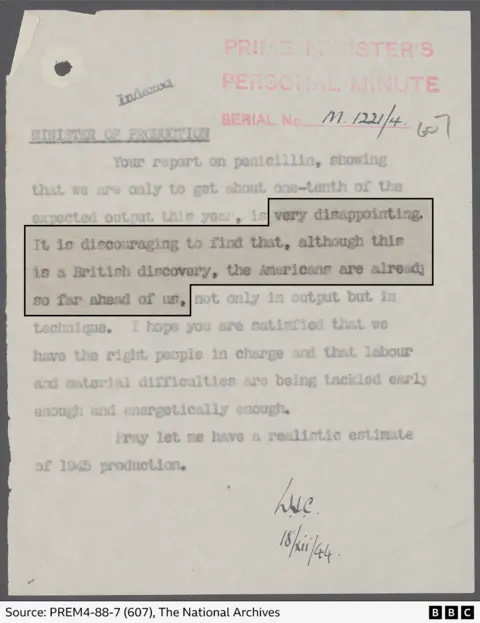
Penicillin was discovered in London by Professor Alexander Fleming in 1928. Despite attempts to produce a usable medicine from the bacteria-killing mould, this had not been achieved by the start of World War Two.
But an Oxford team of scientists, led by Howard Florey, carried out the first successful trials. With large-scale production difficult in the UK, they took their research to the United States, where drug companies expanded output.
Before the development of penicillin, blood poisoning could follow even minor wounds with no cure available. So with the anticipation of the huge military effort ahead, supplies of the drug were seen as essential.
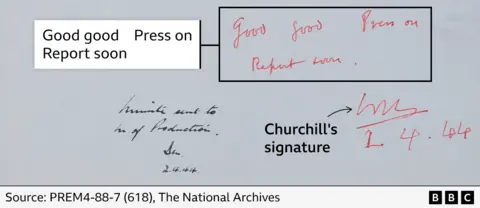
Early in 1944, the prime minister was complaining to his ministers about Britain's inability to produce it at scale. He scrawled in red ink on a Ministry of Supply report that said the Americans were producing greater quantities: "I am sorry we can't produce more".
Later in the year, in response to explanations from officials, he said: "Your report on penicillin showing that we are only to get about one-tenth of the expected output this year, is very disappointing."
On another report, he instructs: "Let me have proposals for a more abundant supply from Great Britain".
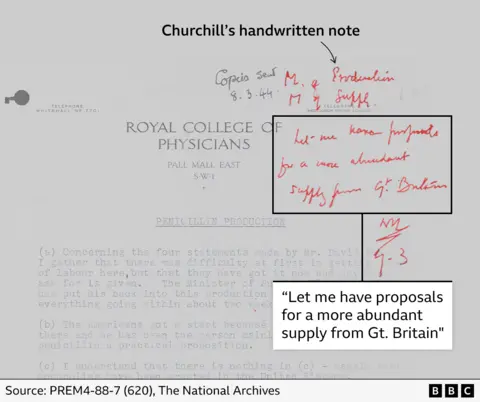
Less than a fortnight before D-Day, health officials could report that sufficient supplies had been obtained, most from the US, but only for battle casualties.
Dr Jessamy Carlson, modern records specialist at The National Archives, said: "The files give a glimpse into the extraordinary levels of preparation undertaken in advance of the D-Day landings.
"Only six weeks before, penicillin is just reaching our shores in quantities which will allow it to play a major role in improving the outcomes for service personnel wounded in action."
But what's now seen as the first true antibiotic would not be fully available to the general public till 1946.
A telegram in the same files shows a doctor from Cornwall, who was treating a 10-year-old child in 1944, pleading with the authorities for the medicine: "No hope without penicillin".
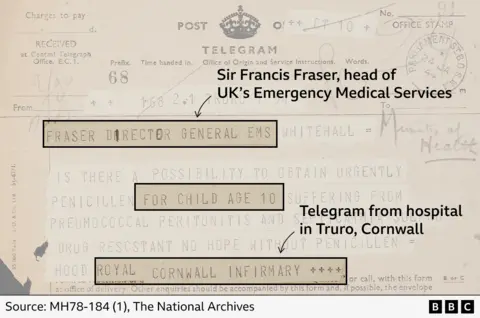
The plea was rejected, with supplies said to be only available for military use.
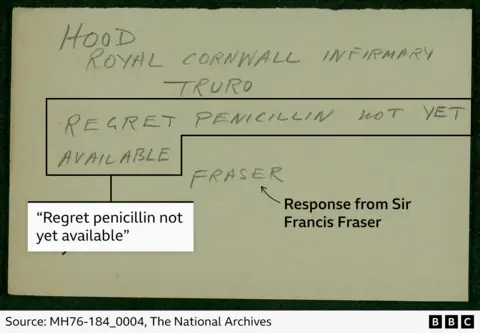
With antibiotics now part of everyday life (and arguably too widely used), the documents seen by the BBC shed new light on the urgent efforts by Churchill and others to secure enough of one such drug for the first time to save lives during the struggle to liberate northern Europe.
BBC





